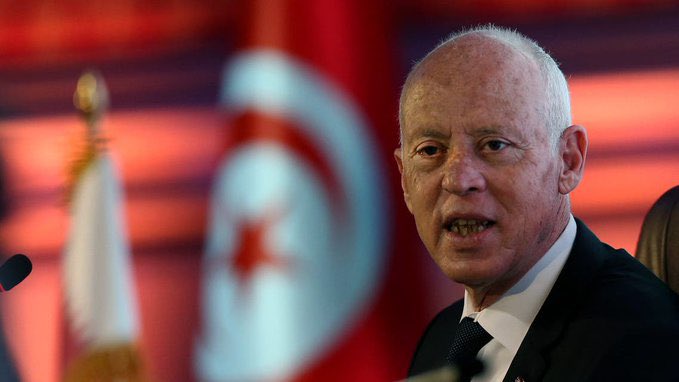Tunisia’s President Kais Saied’s office confirmed Tuesday that the country will hold a presidential election on October 6, 2024, with uncertainty lingering over whether Saied himself will seek re-election after his initial victory in 2019.
Saied, a constitutional law expert, assumed sole authority over Tunisia in 2021, governing by decree after dismissing the prime minister and parliament, which led to the imprisonment of many of his political opponents. In 2022, he secured a new constitution through a referendum, instituting a presidential system alongside a parliament with limited powers.
A statement from Saied’s office on July 2, 2024, announced the formal summoning of voters for the upcoming presidential election scheduled for October 6.
The consolidation of power under Saied’s presidency has had profound economic repercussions for Tunisia, with unemployment soaring to 15% and approximately four million citizens—nearly one-third of the population—living in poverty.
The National Union of Tunisian Journalists reported a crackdown on the media under Saied’s administration, resulting in the prosecution of over 60 journalists, lawyers, and political opponents. In May, Saied dismissed the interior and social affairs ministers amid arrests of human rights activists, lawyers, and journalists.
Since seizing power in 2021, Tunisia’s efforts to secure a $2 billion loan from the International Monetary Fund have stalled due to Saied’s refusal to implement required reforms. However, in June, the European Investment Bank announced grants and loans totaling 450 million euros ($480 million) aimed at supporting infrastructure projects and small to medium-sized enterprises.
The political and economic crisis has driven thousands of Tunisians to undertake perilous journeys across the Mediterranean in search of better prospects in Europe.
The upcoming election is expected to be a pivotal moment for Tunisia as it navigates a path forward amidst ongoing challenges and international scrutiny.

